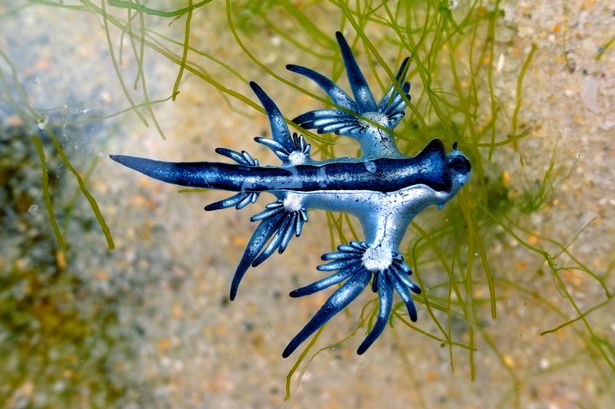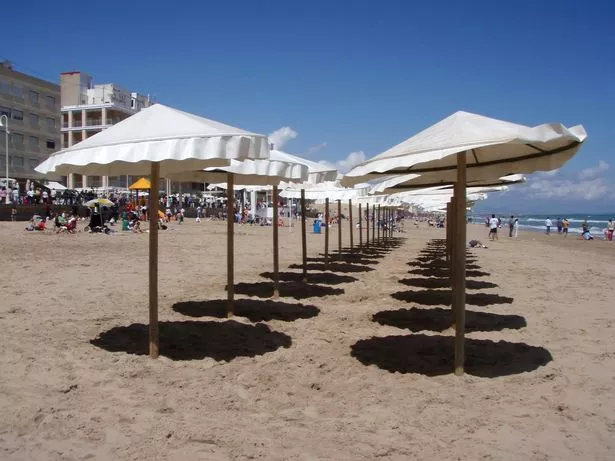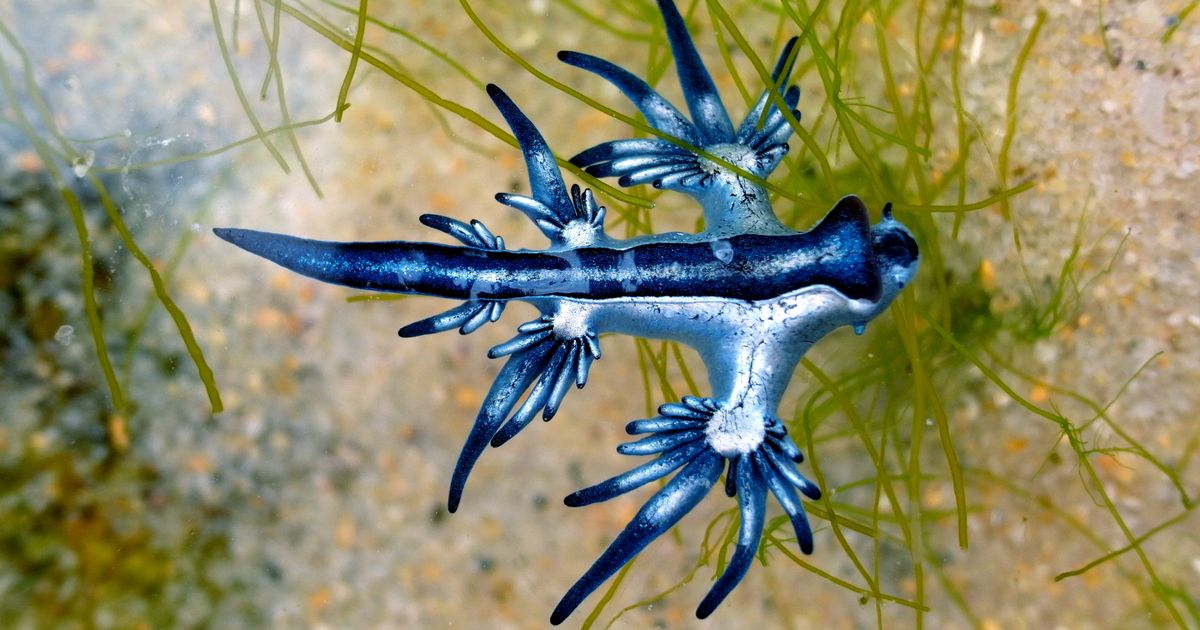The poisonous sea creatures were recently discovered in Guardamar, Alicante. A stretch of beach in Spain has been closed due to Blue Dragons(Image: Getty Images/iStockphoto)
A stretch of beach in Spain has been closed due to Blue Dragons(Image: Getty Images/iStockphoto)
Holidaymakers have been banned from entering beaches in Southern Spain after poisonous sea creatures were discovered on a busy beach.
A seven-mile swimming ban has been enforced in Guardamar del Segura, Alicante, following the discovery of two specimens of Glaucus atlanticus, also known as the Blue Dragon.
The bright blue, deadly creature, which is about 1.5 inches long, stores its sting within its finger-like appendages, making it equally venomous to predators. One sting can lead to nausea, pain, vomiting, acute allergic contact dermatitis, and post-inflammatory hyperpigmentation.
Guardamar del Segura’s mayor, Jose Luis Saez, confirmed the sea ban in a post on X on Wednesday. Sharing on his official account, he said: “Red flag on the beaches of Guardamar. Bathing is prohibited following the appearance on Vivers Beach of two specimens of Glaucus atlanticus, known as the Blue Dragon.
“We remind people that despite its bright and striking colour and its small 1.5 inch size, they should stay away from this animal because of its sting.
Content cannot be displayed without consent
“Guardamar del Segura Town Hall has launched a preventive operation to detect possible specimens carried by ocean currents. Town hall workers are closely following the evolution of the situation and will inform people about the different measures to be taken.
“If you see one of these creatures, don’t touch it, even with gloves on, alert lifeguards and other authorities. If you get stung, wash the area affected with salt water and head to your nearest first aid point or health centre.
“These creatures are poisonous and their stings can cause nausea, pain and vomiting. For the time being and until further notice, bathing in the sea is prohibited.”
On Thursday, Mr Saez said the warning was now yellow after the end of what he called a “special surveillance operation”.
 The creatures were discovered on a beach in Guardamar del Segura(Image: Getty Images)
The creatures were discovered on a beach in Guardamar del Segura(Image: Getty Images)
Posting the update, he advised: “YELLOW flag on the beaches of Guardamar following the closure of the special surveillance operation, due to the presence of two Blue Dragon specimens.
“Municipal services, police, and lifeguards remain attentive to the evolution of the situation.”
According to BBC Wildlife, blue dragons are smaller than grapes, but that doesn’t stop them from attacking much larger venomous animals, including Portuguese men o’war, which are one of the deadliest animals in the ocean.
Melissa Hobson, a marine science and conservation writer at the BBC, said: “They have striking blue bellies that face towards the sky, helping them to blend in with the blue ocean below, should anything be looking down on them.
 Join the Daily Record WhatsApp community!
Join the Daily Record WhatsApp community!
Get the latest news sent straight to your messages by joining our WhatsApp community today.
You’ll receive daily updates on breaking news as well as the top headlines across Scotland.
No one will be able to see who is signed up and no one can send messages except the Daily Record team.
All you have to do is click here if you’re on mobile, select ‘Join Community’ and you’re in!
If you’re on a desktop, simply scan the QR code above with your phone and click ‘Join Community’.
We also treat our community members to special offers, promotions, and adverts from us and our partners. If you don’t like our community, you can check out any time you like.
To leave our community click on the name at the top of your screen and choose ‘exit group’.
If you’re curious, you can read our Privacy Notice.
“They also have striking dark blue patterns: a bold stripe along their body and a ring in the centre of each of their cerata. The tips of these feathery wings are also dark blue, as if they’ve been dipped in ink.
“Blue dragons take a chomp out of their prey using sharp, serrated teeth. Their toxic victims fire stinging cells called nematocysts in self-defence.
“But the diminutive predators aren’t hurt by the sting – blue glaucus are shielded by a layer of mucus and a protective stomach lining that prevents them from being affected by the venom.”
